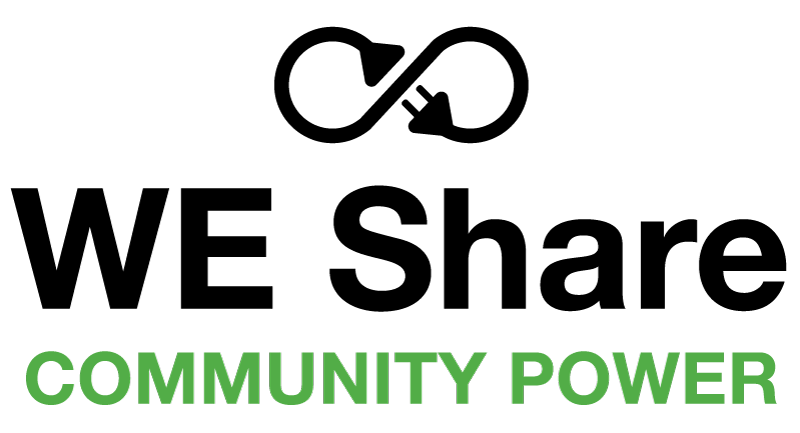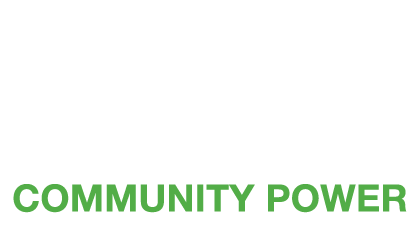WE Share Blueprint Framework
Purpose
⚠️ Note on Usage
This is a working draft of the Blueprint Framework. It is in active use to guide development and collaboration, but it is not yet finalised. Input is welcomed. Once formally adopted, this framework will guide the release and use of the WE Share Blueprint.
The WE Share Blueprint is a living, practical guide to help aligned communities design, implement, and govern community-owned, decentralized renewable energy systems. It provides structure, language, and working models that reflect the core values and experience of the WE Share initiative.
This framework is not a manual of instructions. It is an invitation to build locally, think systemically, and act in alignment with community-first principles. The Blueprint is for those seeking to replicate the spirit of WE Share — not just the systems.
This framework is not a manual of instructions. It is an invitation to build locally, think systemically, and act in alignment with community-first principles.. It is an invitation to build locally, think systemically, and act in alignment with community-first principles. The Blueprint is for those seeking to replicate the spirit of WE Share — not just the systems.
-
What the Blueprint Is
Core Values
The WE Share Blueprint is grounded in the following values, as articulated in the WE Share Charter:
- Community First— Community benefit, ownership, and direction come before commercial interest.
- Transparency— Decisions and intentions are shared openly.
- Inclusiveness— Everyone has the right to participate, contribute, and be heard.
- Sustainability— Environmental, social, and economic wellbeing are interconnected and long-term.
- Trust & Accountability— We do what we say, and we hold ourselves accountable to our community.
- Collaborative Stewardship— We share power and knowledge for collective care and outcomes.
Applying Our Values in Practice (To Be Developed)
As the Blueprint is co-developed and refined, this section will capture examples of how WE Share values show up in real-world decisions, behaviours, and governance choices — across projects, partners, and communities.
This is not a ruleset, but a living reference to help others understand how to act in alignment with the spirit of WE Share.
- A values-led, modular framework for collaborative replication
- A reflection of lived experience from the WE Share pilot and partners
- A cultural transmission tool to support ethical use, attribution, and adaptation
It is not a brand, a license, or a legal claim. It is a community artefact, shared in trust.
-
Who It’s For
The Blueprint is intended for:
- Community groups exploring local renewable energy solutions
- Organisations wishing to embed values-based governance in technical systems
- Replicators, researchers, or facilitators wanting to learn from WE Share’s journey
Use is open — provided it’s done in good faith, with clear attribution, and for community-serving purposes.
-
Components of the Blueprint
The Blueprint will continue to evolve, but currently includes:
Alignment & Readiness
- Community Enrollment, Education & Alignment
This component supports the shared understanding needed for trust and readiness. While technical work may begin early, strong values alignment can occur when there is a clear enough draft frameworkfor people to meaningfully engage and contribute. This phase includes tools for co-learning, participatory discussion, and clarifying what WE Share is — and what it isn’t.
Governance & Community Structures
- Foundational Values & Principles
- Community Ownership Models & Organisational Structures
Cooperative models, custodianship roles, local legal entities, and management principles for maintaining community control and accountability. - Cultural Protocolsfor alignment and collaboration
Technical & Operational Systems
- System Design Examples(e.g. solar PV + battery + VPP models)
- System Architecture Principles
Guidance on modular design, scalable configurations, and technical rationale behind system decisions.
Engagement & Replication Tools
- Engagement & Onboarding Tools
- Templates for Community Coordination
- Replication Pathways
Steps for new communities to get started, including best practices, expectations, and common pitfalls.
Economic and Resource Flows
- Financial Pathways & Tools
Examples of funding models, shared savings structures, and community investment strategies. - Circular Economic Integration
Support for systems that promote local resource loops, resilience, job creation, and reinvestment within the community.
Stakeholder Mapping & Partnership Engagement
- External Relationship Building
Guidance on identifying, engaging, and sustaining relationships with key stakeholders — including councils, iwi, funders, regulators, and aligned organisations — while maintaining community autonomy and values-first decision-making.
Community Leadership Pathways
- Participation & Capacity Building
Support structures for growing local capacity, confidence, and custodianship of WE Share projects through facilitation, training, succession planning, and lived leadership.
Legal Pathways for Local Structures
- Establishing Local Legal Entities
Outlines common legal forms (e.g. cooperative, trust, company) and basic compliance considerations to support ethical governance and protect community interests. This is not legal advice. These resources are provided as helpful starting points for communities exploring appropriate legal structures to support their initiatives.
Measuring What Matters
- Monitoring, Evaluation & Learning (MEL)
Lightweight, values-aligned tools for assessing impact, reflecting on outcomes, and feeding insights back into the system for continuous improvement.
From Vision to Commissioning
- Project Lifecycle Overview
Describes the typical flow of a WE Share-aligned initiative, from early visioning and alignment through design, funding, implementation, and beyond — with key milestones and decision gates.
All components are subject to revision, expansion, and local adaptation.
3A. Academic and Collaborative Use
This framework is open to collaborative exploration, refinement, and critique — including by students, scholars, and aligned practitioners. It invites multidisciplinary contributions that explore the cultural, technical, legal, and governance systems underpinning community-led energy transitions.
Contributors are encouraged to document their insights, offer adaptations, or propose models that could strengthen future versions of the Blueprint. All engagement should be values-aligned, community-serving, and clearly attributed.
-
Using the Blueprint Responsibly
This Blueprint is supported by the WE Share IP & Sharing Framework, which outlines how WE Share content can be shared, adapted, and attributed in ways that protect community interests and values.
Anyone using or adapting the WE Share Blueprint is asked to:
- Acknowledge Waiheke Island as the source origin
- Attribute major elements where reused
- Avoid commercialisation unless agreed with the WE Share community
- Maintain core values when adapting materials
Misuse, misrepresentation, or ethical conflicts may result in the community publicly disassociating from that usage.
-
How to Engage
- You don’t need permission to use the Blueprint — just honesty and alignment.
- Let us know if you’re using it — we’d love to support or learn with you.
- If you improve or evolve it, share it back — that’s the spirit.
This is a shared future, not a proprietary one.
WE Share: Holding the Blueprint lightly, but with care.
This document is live and evolving. It reflects what’s already happening on the ground — and invites others to help shape what comes next.
Appendix: Key Terms & Concepts
Custodianship — A principle of shared responsibility, where power and care are distributed rather than owned.
Values-first design — Prioritising ethical and community principles in how systems are structured and operated.
Replication Pathway — A sequence or pattern of steps that allows a local group to build on the WE Share model in their own context.
Community-first — Placing local needs, leadership, and ownership ahead of commercial or external interests.
Non-commercial use — Utilisation of resources, ideas, or tools in ways that serve community benefit, without extraction or profit for external private entities.
Alignment — A process of shared understanding and commitment to common values, even amidst diverse perspectives or approaches.

